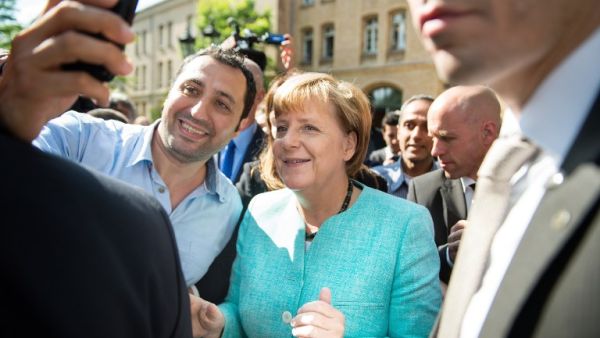Germany can deal with the arrival of hundreds of thousands of refugees without cutting social welfare benefits or raising taxes, Vice Chancellor Sigmar Gabriel said on Thursday during a debate in parliament on next year's budget.
Germany expects 800,000 asylum seekers this year, four times more than last year and more than any other country in the European Union, which is split on how to deal with the biggest refugee crisis since World War II.
The German government earlier this week approved a 6-billion-euro ($6.7 billion) package to finance the migrant inflow. This includes 3 billion euros in the 2016 budget and as much to help federal states whose resources are being squeezed.
Gabriel said Germany would be able to finance the costs given its stable fiscal position and its strong economy, which the government expects to grow 1.8 percent this and next year.
Some 450,000 asylum applications were made in Germany since January, said Gabriel, who is economy minister and heads the center-left Social Democrats, coalition partners in Chancellor Angela Merkel's ruling coalition.
He said 105,000 applications were made in August, and 37,000 so far in September. "Maybe it will be 100,000 in September," Gabriel said.
Gabriel appealed to German businesses and politicians to speed up the integration of migrants by offering vocational training. He said migrants would be beneficial to an economy whose workforce is projected to shrink by 6 million by 2030.
Finance Minister Wolfgang Schaeuble said this week that Germany wanted to finance the refugee crisis without new debt. The government's orginal draft budget stood at 312 billion euros, excluding the 6 billion euros earmarked for refugees.
By Andre Stahl








